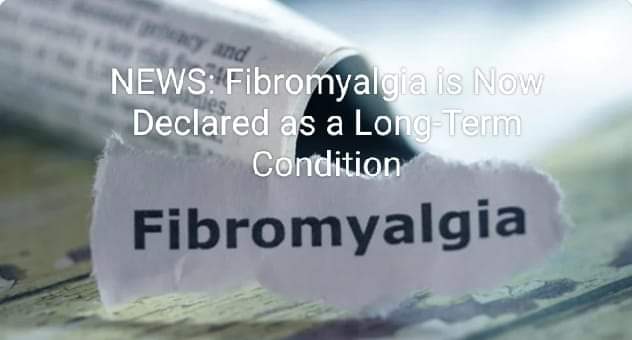By Adrienne Dellwo
Medically reviewed by Aviv Joshua, MSPrint
Would it help to drink tea for fibromyalgia (FMS) or chronic fatigue syndrome (ME/CFS)? It just might.
Tea is one of the most popular drinks in the world, but it’s way down on the list in the United States, coming in behind coffee and soda. In the past few years, however, studies suggesting health benefits of tea have certainly raised its profile and popularity in the United States.1
Behind the Hype
According to research, it looks like tea has several things to offer, both for the public in general and for those of us with fibromyalgia or chronic fatigue syndrome. Much of the research is in its early stages and some results are contradictory, but a picture is emerging.
Tea contains two things that appear to offer health benefits: polyphenols2 and theanine.3 While tea hasn’t been studied specifically as a treatment for FMS and ME/CFS, we have research suggesting that these two ingredients may hold some promise for us.
Polyphenols
Polyphenols have gotten the lion’s share of the attention when it comes to tea’s recent publicity. Research shows they may:
- Offer protection from coronary heart disease4
- Protect against stroke
- Improve blood vessel dilation
- Protect against numerous types of cancer2
Polyphenols are a type of antioxidant. Antioxidants are probably something you know are supposed to be good for you but don’t really understand. The science behind them is complicated and has to do with molecules called free radicals.5
For those who aren’t really into science, think of free radicals as broken-down cells. We all have some. But if you get too many, according to research, they can make you sick. Antioxidants have what those cells need to repair themselves and be healthy again.
Now let’s break down the word antioxidant:
- Anti=against
- Oxidant=something that causes oxidation, which is a breakdown of chemicals due to exposure to oxygen (rust is one example of oxidation)
An emerging line of research has to do with the role of oxidation in FMS, ME/CFS, and some other related illnesses. Specifically, it’s the build-up of nitric oxide, which leads to oxidative stress (too much oxygen-related breakdown).5 The scientists behind this theory believe that too much nitric oxide in the body starts a chain reaction that both triggers these conditions and keeps them going.
Additionally, a study published by the International Journal for Vitamin and Nutrition Research in 2017 suggested that polyphenol-rich foods may reduce pain and improve quality of life in women with FMS.6
So tea may lower pain, treat and prevent disease, and improve your life. Not bad.
Theanine
Theanine, also called L-theanine, is an antioxidant as well. It’s only found naturally in tea and a specific type of rare mushroom. A synthetic form is available as a dietary supplement, as well.
Theanine has been fairly well researched and is believed to:7
- Increase alertness and improve memory
- Relieve anxiety
- Protect brain cells
- Increase levels of the neurotransmitters dopamine and norepinephrine (which can be low in FMS and ME/CFS)
- Lower activity of the neurotransmitter glutamate (which can be high in FMS)
- Help regulate the sleep-wake cycle, which is often dysregulated in these conditions
- Boost production of T cells in the immune system (which can be low in ME/CFS)8
Those are a lot of potential benefits. You won’t get all that just from a single cup of tea, though.
What You Need to Know About Tea
There’s more to tea than pinky up or pinky down. To get the full health benefits from drinking tea, you have to know a few things about it.
- Theanine and polyphenols are only in true tea: green, black, oolong, and white teas, which all come from the Camellia sinensis tree.9 Herbal “teas,” rooibos, and yerba mate don’t have true tea leaves in them and thus don’t contain these exact same ingredients. (They may have their own health benefits, just not these particular ones.)
- Decaffeinated tea also comes from the Camellia sinensis tree, and the leaves have gone through a chemical process that strips out the caffeine.10 Be sure the package says “decaffeinated,” though, not “caffeine-free,” or you may be getting herbal tea.
- Decaf teas do keep their theanine content through the decaffeination process, but we don’t yet know if they retain polyphenols.10
- Green and oolong teas contain more theanine than black tea.11 All plain teas have about the same amount of polyphenols, although they can differ in which ones are present.10
- Bottled teas can contain a lot of sugar or artificial sweeteners along with other things you may not want in your diet, especially in high amounts. Be sure to check the ingredients list.
New Tea Research Boasts Heart, Brain, and Immune Benefits
Potential Downside of Tea Drinking
Tea is generally thought of as a healthy beverage, especially if it’s unsweetened. However, nothing is without possible risks.
The biggest problem with tea may be that it contains caffeine (although amounts vary greatly based on several factors.) If you don’t tolerate caffeine well, this is a big problem. Even decaf teas may contain trace amounts of caffeine.
Watch for negative side effects or upswings in symptoms that could be from tea and talk about it with your practitioner (as you should with anything medicinal, even when it’s natural.)12
Also, tea contains high amounts of natural substances called oxalates, which may contribute to the formation of a certain type of kidney stone. If you’re prone to oxalate kidney stones, be sure to discuss this aspect of tea with your healthcare provider before you start drinking it regularly.13
A Word From Verywell
If you drink a lot of soda or coffee, and especially if you’re drinking it for the caffeine, you may want to substitute tea for at least some of your daily servings. To get a consistent amount of theanine, supplements could be an easier choice, but remember that you’ll be missing out on the polyphenols that way.
reference>https://www.verywellhealth.com/tea-for-fibromyalgia-chronic-fatigue-syndrome-3973004



